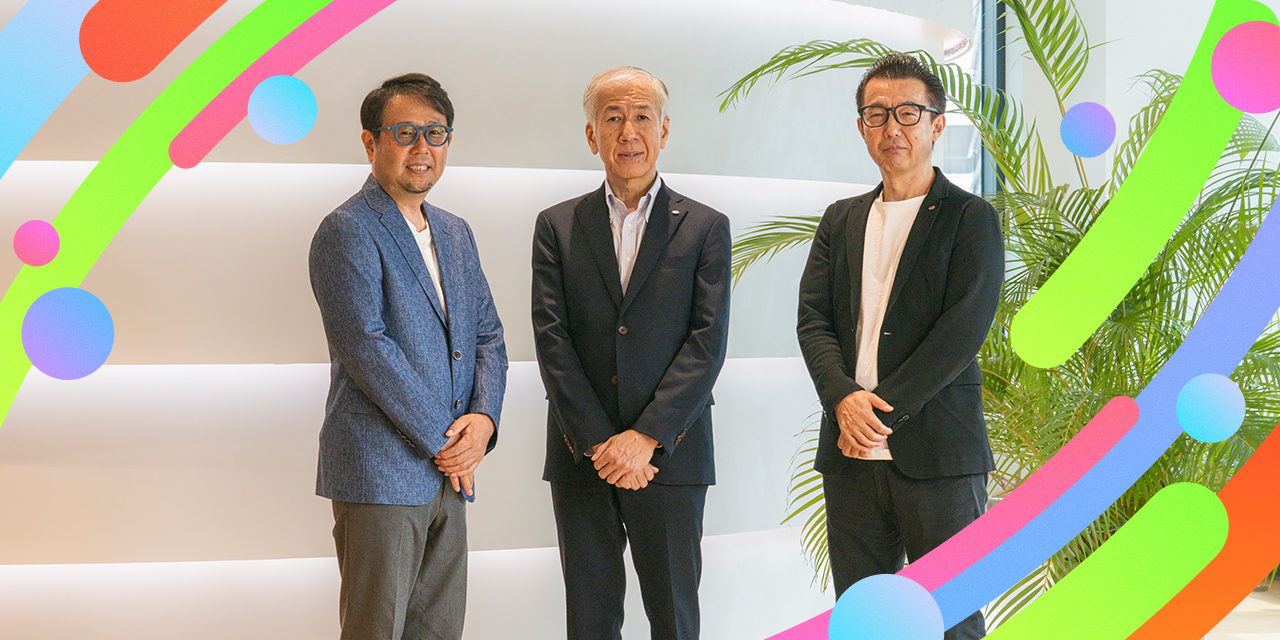
Sustainability Week 2025: Aiming for an Exciting(KOKORO ODORU) Future Opening Discussion: "HIS's Sustainability Management"
From September 22 to October 5, 2025, "HIS Sustainability Week 2025" was held as an internal event for HIS. To deepen employees' understanding of initiatives aimed at realizing a sustainable society, with the goal of "a future that makes your heart dance," HIS introduced sustainability case studies, held workshops, and online seminars.
Here's a report on the special discussion that kicked off the event. Professor Sameshima of Komazawa Women's University facilitated the discussion with Mr. Yada, Representative Director and President of HIS, and Mr. Yamanobe, Director, discussing the significance of HIS's sustainability management, coexistence and co-prosperity with local communities, and the revitalization of outbound travel, from multiple perspectives.

Professor Taku Sameshima, Faculty of Tourism and Culture, Komazawa Women's University
At HIS, he promoted management planning, tour planning for overseas and domestic travel, and new businesses, and has received the Commissioner of Japan Tourism Agency Award in 2015 for his study tour initiatives. Subsequently, he engaged in international cooperation and tourism development as a JICA expert. Currently, while teaching as a professor in the Department of Tourism and Culture at Komazawa Women's University, he is also involved in research on industrial agglomeration and innovation in tourist destinations.
[Latest Book] A Complete Text Book Guide to the Structure and Business of the Travel Industry
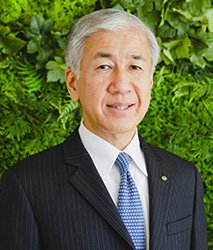
H.I.S. Co., Ltd.
Representative Director, President & CEO Motoshi Yada

H.I.S. Co., Ltd.
Director, President of HIS JAPAN Atsushi Yamanobe
The Significance of HIS's Sustainability Management
Sameshima: Since joining HIS in 1996, I've felt that as our number of employees grew, the societal perception of the company evolved as well. Since HIS has become a force that influences society, I believe it is highly reasonable to address social and global issues, not just its own profits. Could you tell me about President Yada's thoughts, concerns, and goals regarding the advancement of HIS's sustainability management?
Yada: HIS has identified seven material issues, three of which are directly related to sustainability.
The first is "promoting the success of diverse human resources." With the declining working population, HIS must become a company where every employee can thrive and be chosen by talented individuals. Although the percentage of female employees is high, women currently represent less than 20% of management. We aim to be a company where employees feel a sense of purpose and can do work that makes their hearts dance, with goals of an 80% employee engagement score and 20% female executives and managers by 2026. Starting this year, we have established a new award system called "HIS Group Award," which not only recognizes sales achievements but also includes a Purpose category, where episodes related to work that connect to HIS's Purpose, "Unleashing 'Heart-Pounding' Experiences," are solicited, and the recipients are decided by a vote of all staff.
The second is "preserving the global environment." The tourism industry accounts for 8% of all CO2 emissions, and we aim to maintain a global environment where people can enjoy travel forever. We are targeting a 70% reduction in the usage of both plastic products and copy paper by 2026, relative to our 2019 levels, and to achieve net-zero CO2 emissions from our own operations by 2030. Examples of initiatives include the "plogging" activity combining jogging and litter collection carried out by HIS Hawaii Corporation, water quality improvement activities in the Ala Wai Canal, and workshops on marine plastic waste issues held at HIS Group's Laguna Ten Bosch, among various activities worldwide.
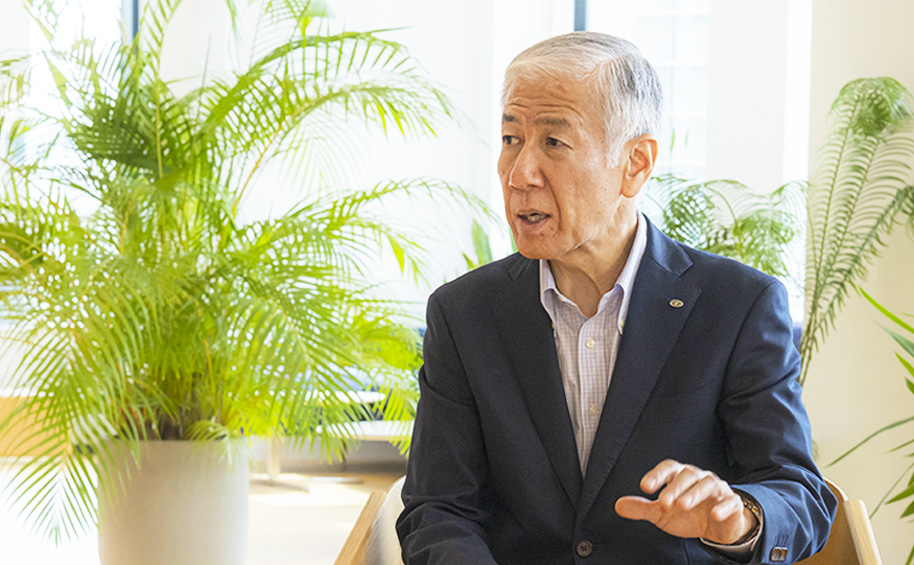
The third is "coexistence with local communities." We aim to be a company chosen not only by customers but also by local communities. Although there are no specific numerical targets, we believe it is important to respect the human rights of local communities and promote mutual understanding in accordance with our human rights policy, and we will also promote measures against overtourism. Initiatives such as "Malama Hawaii*1," study tours, and universal tourism have received high praise both internally and externally, including the JATA SDGs Award. We have also established a specialized department for regional revitalization and are strengthening cooperation with local governments, NPOs, and NGOs.
Initiatives for Coexistence and Co-prosperity with Local Communities
Sameshima: Next, I would like to ask about coexistence and co-prosperity with local communities. In tourism studies, the travel industry is considered part of the tourism industry and plays a role in mediating between travelers and tourism businesses. However, if it ends with mediation, issues such as seasonal customer fluctuations, measures for off-peak seasons, and temporary employment problems can arise. Building long-term relationships and coexisting and co-prospering with local communities are very important from a sustainability viewpoint. Could you tell us about HIS's initiatives and what you want to do in the future?
Yamanobe: I often have opportunities to meet with local people, and the first thing I try to say is, "If you don't make a profit, you can't continue." Although we want to work for the community, in order for a private company like HIS to continue its activities, we need to create a business model that generates profits for both HIS and the community.
In the "Malama Hawaii" initiative, as a partner of the Hawaii Tourism Authority, we are strengthening environmentally conscious tourism. Witnessing travelers enjoying participating in such activities, I feel the importance of incorporating these initiatives.
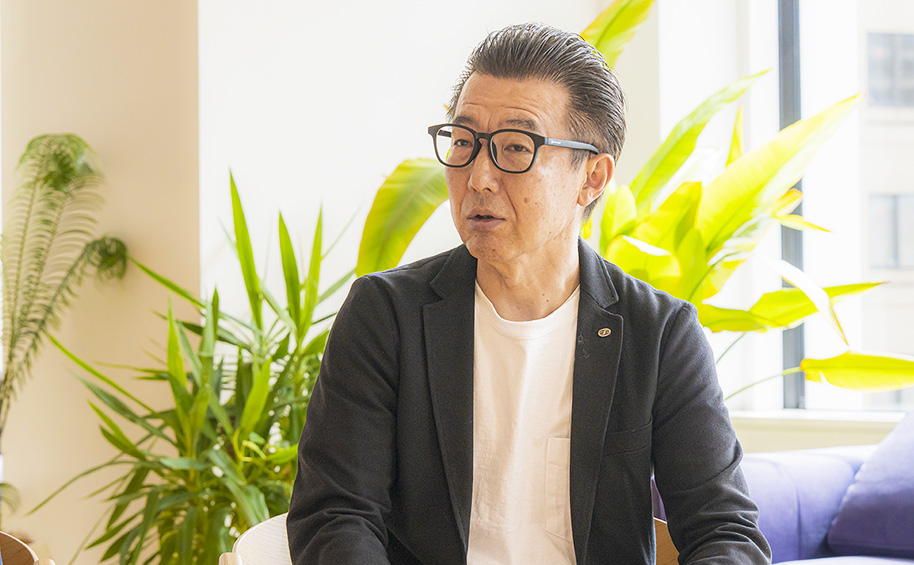
Recently, we also invested in Satoyume Co., Ltd., which is working on regional revitalization. They are a company that goes into communities, identifies the problems communities face, and provides solutions. I believe that by supporting them and working alongside the communities, we can propose better solutions to problems.
HIS is also developing new destinations such as Saudi Arabia through the expansion of overseas branches. We believe this will lead to the dispersion of tourists as a measure against overtourism and also propose new travel attractions to customers.
Sameshima: Mr. Yada, given your long history with the Kyushu Sanko Group, how do you understand coexistence and co-prosperity with local communities from a different perspective as president of HIS, compared to when you first entered the region?
Yada: From 2005 to 2021, I was involved in the management of Kyushu Sanko in Kumamoto for 15 years. At that time, HIS Group and a local business consortium decided to support Kyushu Sanko, which was facing financial difficulties, and the local community was filled with both hopes and fears. We declared that we would "properly and firmly settle down, expand our business, and work for the community," and implemented various community-based projects.
Among these, the redevelopment of the old bus terminal, which was a key facility in the local area, helped to spread the understanding that HIS was serious and allowed us to establish roots in the community. During the Kumamoto Earthquake in 2016, we were asked by the administration to temporarily suspend the redevelopment, but with strong support from local economic organizations, we were able to continue. As a result, the project was even called a symbol of recovery from the Kumamoto Earthquake. I feel that Kyushu Sanko, as a representative of the HIS Group, has been allowed to take root in the community.
Sameshima: Building relationships with local communities takes time, and gaining trust is difficult, isn't it? I feel it is important for a long-lasting relationship to be a proactive one, where we discuss and create together, rather than just passively receiving instructions. This re-emphasizes the importance of building win-win relationships.

Addressing Tourist Manners and Cultural Friction
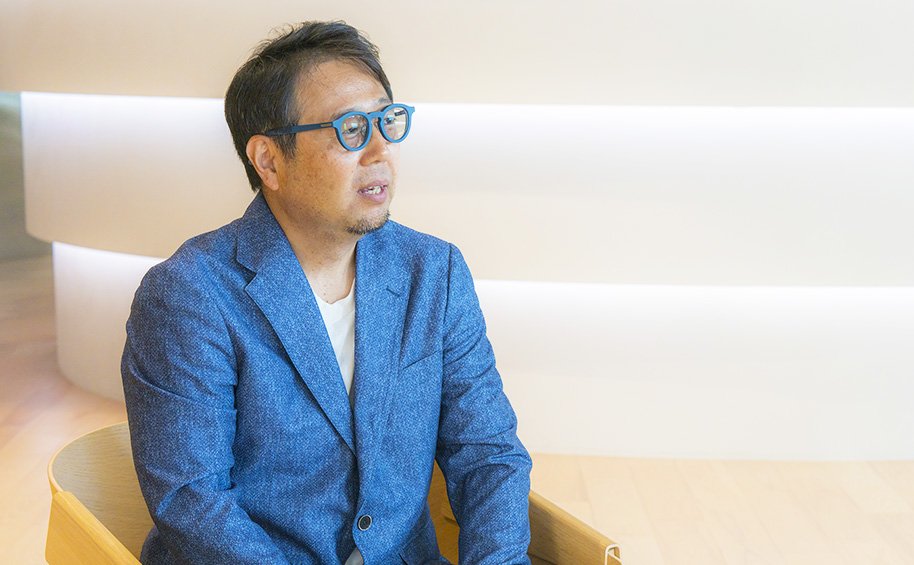
Sameshima: Next, I would like to ask about the issues of tourist manners and cultural friction. Actions taken with good intentions can sometimes cause friction due to differences in social norms. In the past, there was a saying, "Travel shame can be discarded," but that causes trouble for the local community. Recently, the term "tourist-ship" has emerged. This refers to the idea of travelers becoming welcome presences in tourist destinations, similar to sportsmanship, with the aim of being considerate and contributing to the travel destination. What are your frank thoughts on this concept of tourist-ship?
Yamanobe: Experiences that contribute to the local environment, such as litter collection, bring joy to travelers themselves and can become one of the ways to enjoy travel. I think this concept could be an opportunity for travelers to think about how travel can involve activities that contribute positively to the local community and environment. The 'Plogging' activities carried out by HIS Hawaii are also being incorporated into our itineraries for group tours. We are making a new proposal to our customers where we move beyond simply sending them on a trip, and encourage them to contribute to their destination and reflect on the deeper meaning of visiting that location. Through these kinds of initiatives, HIS aims to spread the concept of 'Tourists-ship' together with our customers.
Sameshima: While the traditional role of travel agencies has historically been meeting customer demands, I feel that considering tourist destinations, we are entering a new phase of fostering good travelers.
Towards the Revitalization of Outbound Travel
Sameshima: Next, as HIS has grown primarily through overseas travel, I believe it is necessary for us to leverage that DNA not just by providing travel to customers, but also by fostering travelers themselves. For sustainable management, we must somehow overcome the stagnation of outbound travel. This is a common understanding throughout the industry.
Japan's outbound travel rate is extremely low globally, and while the outbound travel rate for women in their 20s is the highest, the low rate for men in their 20s is a major issue. Also, the structural problem of lower outbound travel rates in rural areas compared to urban areas has not changed since before COVID-19. Given these circumstances, I would like to ask about HIS's initiatives for revitalizing outbound travel.
Yamanobe: The revitalization of outbound travel is a point I am truly eager to work on. Simply put, I believe it's about effectively communicating the significance, value, and appeal of overseas travel. It's crucial not to use low passport ownership rates, exchange rates, or international affairs as excuses. If there's a desire to go, a sense of purpose, enjoyment, or the possibility of something new emerging, people will naturally get passports and go overseas. While HIS grew in an era when simply going overseas was an aspiration, it is now important to convey specific purposes and meanings such as "what can be done overseas" and "contribution to the local area." In an age where information can be obtained online, I feel that we are not adequately conveying the meaning of firsthand experiences, what can only be solved by going to the local area, and the value to a generation that strongly desires to contribute to helping local areas.
HIS once helped to popularize travel, but now we want to significantly change that trend and provide experiences that only a travel agency can offer, by clearly communicating the purpose and significance of travel to customers. Above all, we want to convey the wonderfulness of going overseas.
Sameshima: I'm aware that Japanese tourism seems to be dominated by inbound travel, but isn't it important to reconsider the logic that experience and knowledge of outbound travel play a crucial part in successful inbound business? In regions currently working on inbound tourism, people with rich overseas experience are working as guides and managing inns. What are your thoughts on promoting inbound tourism while embracing the importance of outbound travel, without separating the two?
Yada: I strongly resonated with the idea of cross-cultural and two-way exchange, which also relates to tourist-ship. As Professor Sameshima mentioned, the idea that one must know the world to engage in inbound tourism is also true in reverse. Nowadays, by interacting with visitors to Japan, opportunities to open one's eyes to the world and develop interest are increasing. When I walk around town, foreigners sometimes ask me for directions or recommendations for good ramen restaurants, and such exchanges can spark an interest in traveling overseas.
This year, the number of inbound tourists is expected to exceed 30 million, and I feel that HIS can do something to leverage this opportunity to enhance the internationality of the Japanese people.
Yamanobe: I believe it is important to ensure mid- to long-term continuation of initiatives, such as implementing 2-Way Charters *2, that will lead to greater exchange among people of various region.
Sameshima: Yes. I sincerely hope HIS will continue to do its best.
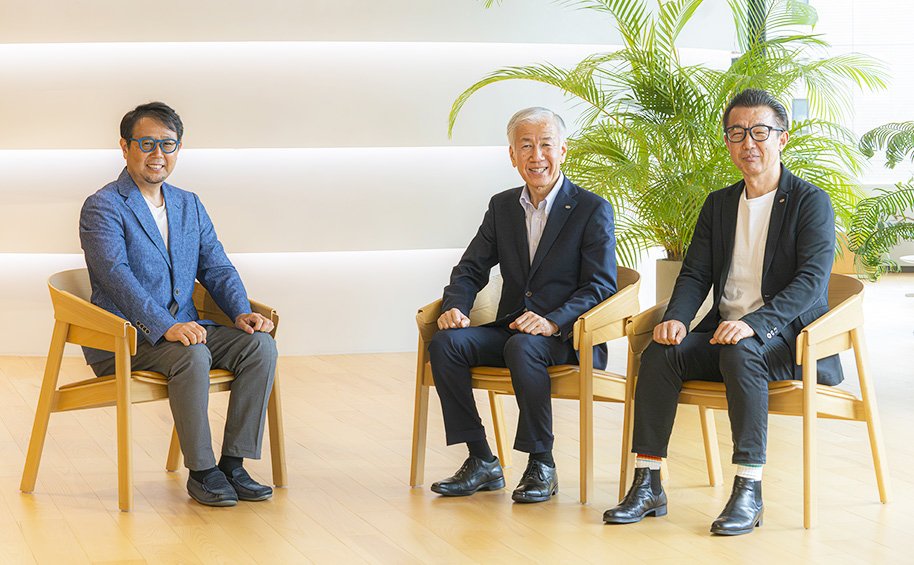
*1 Malama Hawaii... Means "the heart to care for Hawaii" in Hawaiian. HIS has concluded a partnership cooperation memorandum with the Hawaii Tourism Authority Japan office to promote "Malama Hawaii" to foster "Regenerative Tourism" which protects the natural environment, traditions, and culture, and creates a sustainable society together with local communities and tourists.
*2 2-Way Charter... A system that involves round-trip flights to send passengers from both directions.
